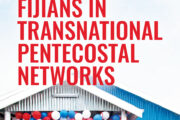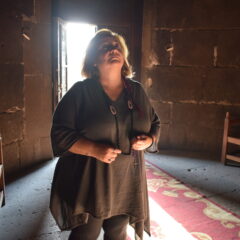During the Azusa Street Revival of the early 20th century, single white women embarked on one-way journeys to parts of the globe that were largely unknown to most of them. These women felt themselves directly called by God to minister to non-Christianized populations—and they also found a way to experience a powerful sense of purpose at a time when women in the United States were largely excluded from leadership positions in other denominations and had not yet won the right to vote.
Similar impulses—and opportunities—now stoke the fervor of women in Pentecostal and Charismatic religious movements in parts of the world where constraints on women’s power, both secular and religious, are often the last forms of institutional oppression to succumb to the forces of modernity. In Latin America, for example, the exclusion of women from positions of authority in politics as well as in traditional Catholic hierarchies has made renewalist religion a key source of women’s empowerment in the countries where it is growing most rapidly.
It remains to be seen whether these shifts in the status of women will effect social change beyond their Pentecostal and Charismatic communities. That evolution will depend largely on the relative size of renewalist movements within a given country, the degree of civic engagement encouraged by the leaders of those movements and the intensity of push-back from stakeholders in the status quo.
Karla Rodriguez, Universidad Centroamericana on Pentecostalism’s impact on women
PCRI Central America






